Abstract
The possible role of "effort" in the accuracy of pigeons' performance on a delayed matching-to-sample procedure was investigated by examining the effects of response requirements that accompanied a trial-initiating stimulus and that accompanied a sample stimulus. In the first experiment, the effect of varying the size of a fixed-ratio requirement for responses during an initiating stimulus was compared to that of varying a similar requirement for responses during the sample stimulus. Accuracy increased reliably with increases in the ratio scheduled during the sample stimulus, but was not significantly affected by increases in the ratio scheduled on the key during the initiating stimulus. In another phase of Experiment 1, sample duration was held constant while the ratio requirement was varied during the initiating stimulus. Again, accuracy of matching to sample was not significantly affected by the size of the ratio scheduled during the initiating stimulus. Experiment 2 provided a systematic replication of these results in another group of pigeons and included a more detailed analysis of responding. These results support the view that increases in sample-response requirement facilitate accuracy of delayed matching by increasing the durations of exposure to the sample stimuli, and do not support a role of effort in the sample-response effect. In Experiment 3, the facilitative effect of responses on the sample but not of those on the initiating stimulus was replicated using a simultaneous matching-to-sample procedure. This finding provides further evidence against an interpretation of response-requirement effects that appeals to effort; the finding also suggests that sample exposure might affect initial discrimination of the sample rather than remembering the sample.
Full text
PDF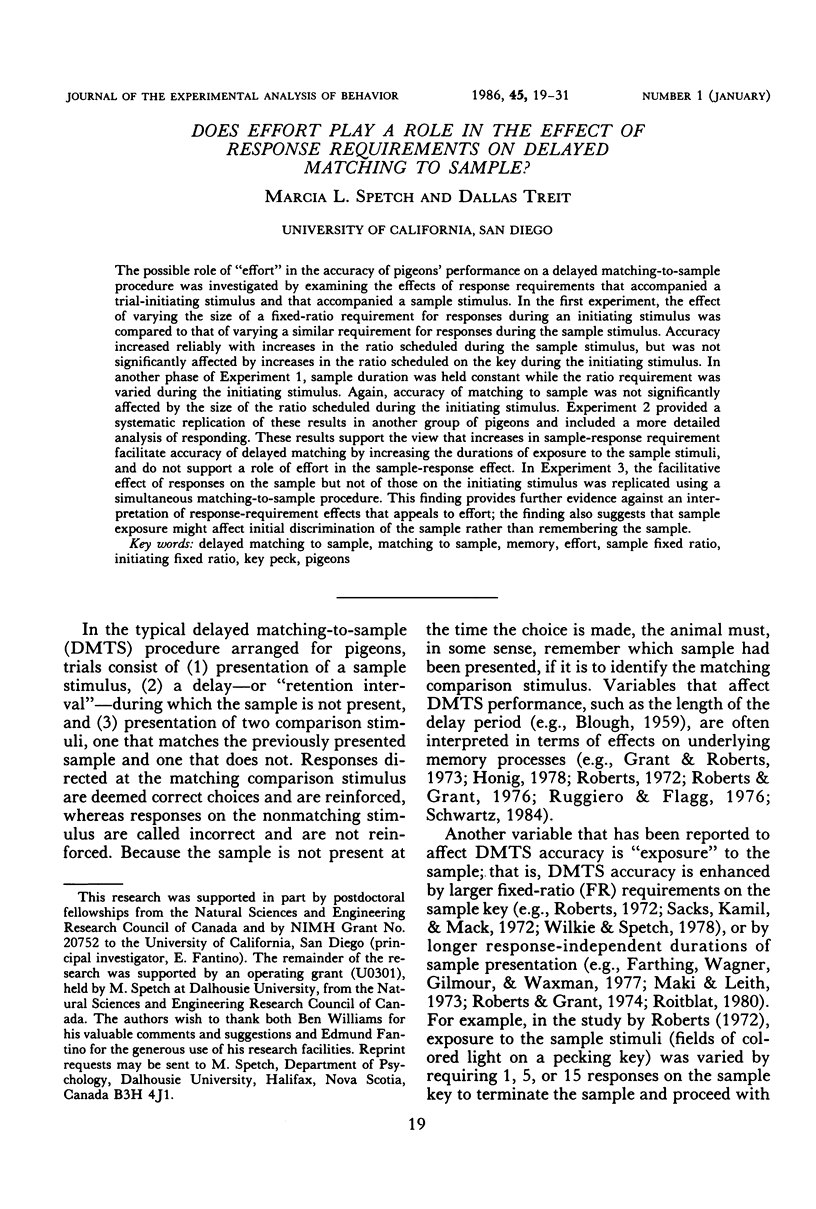
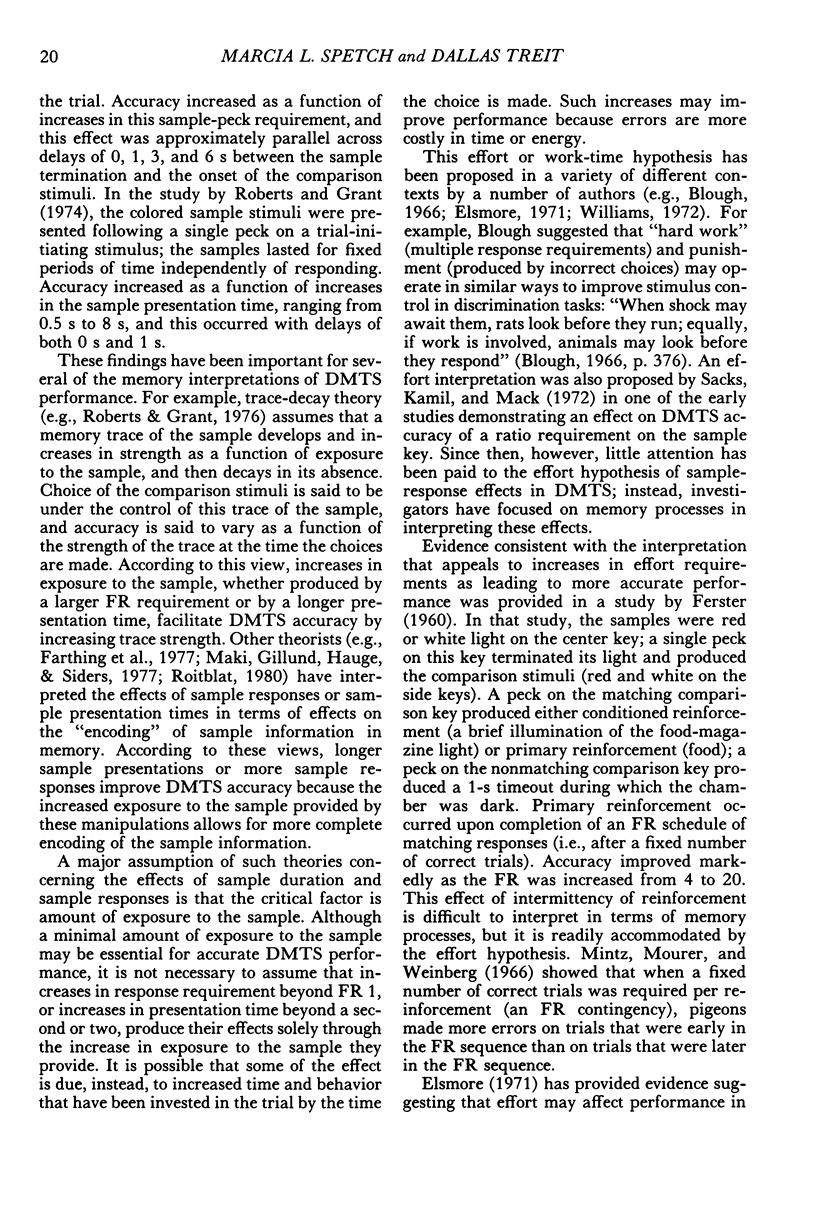
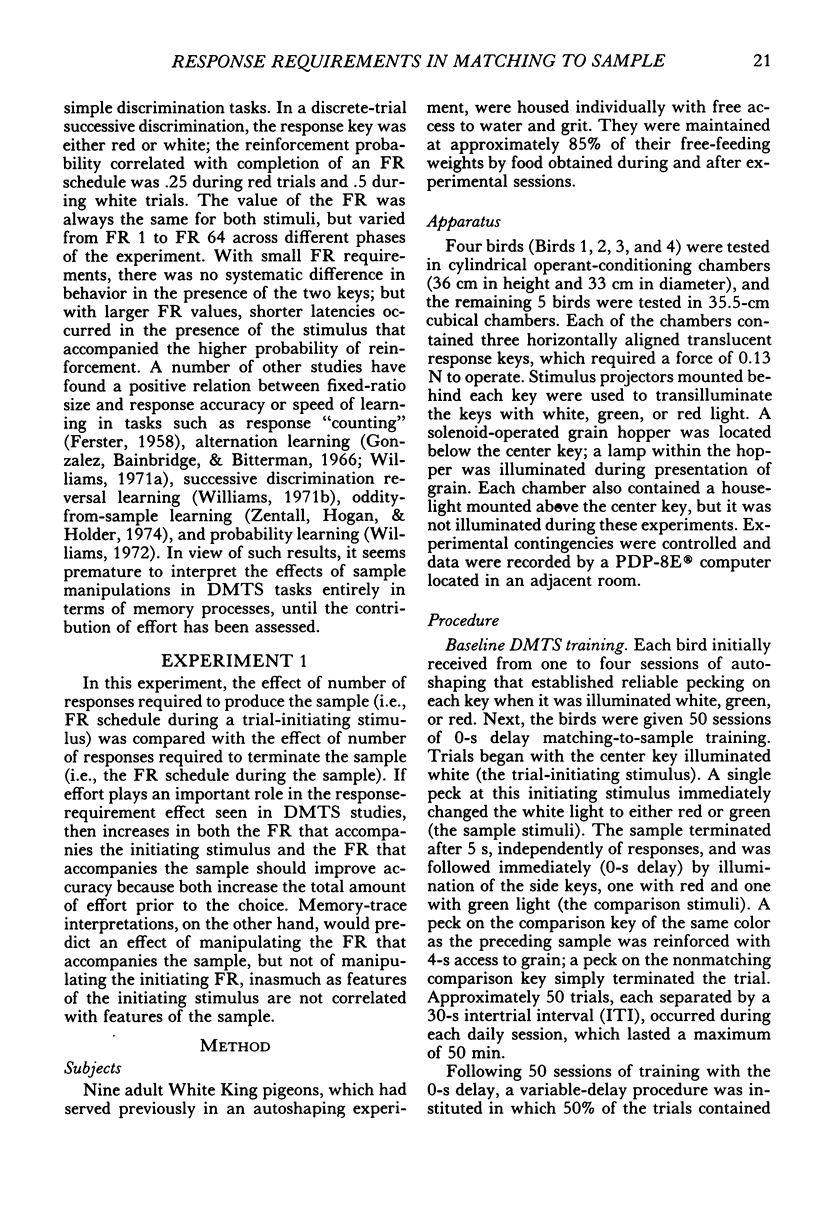
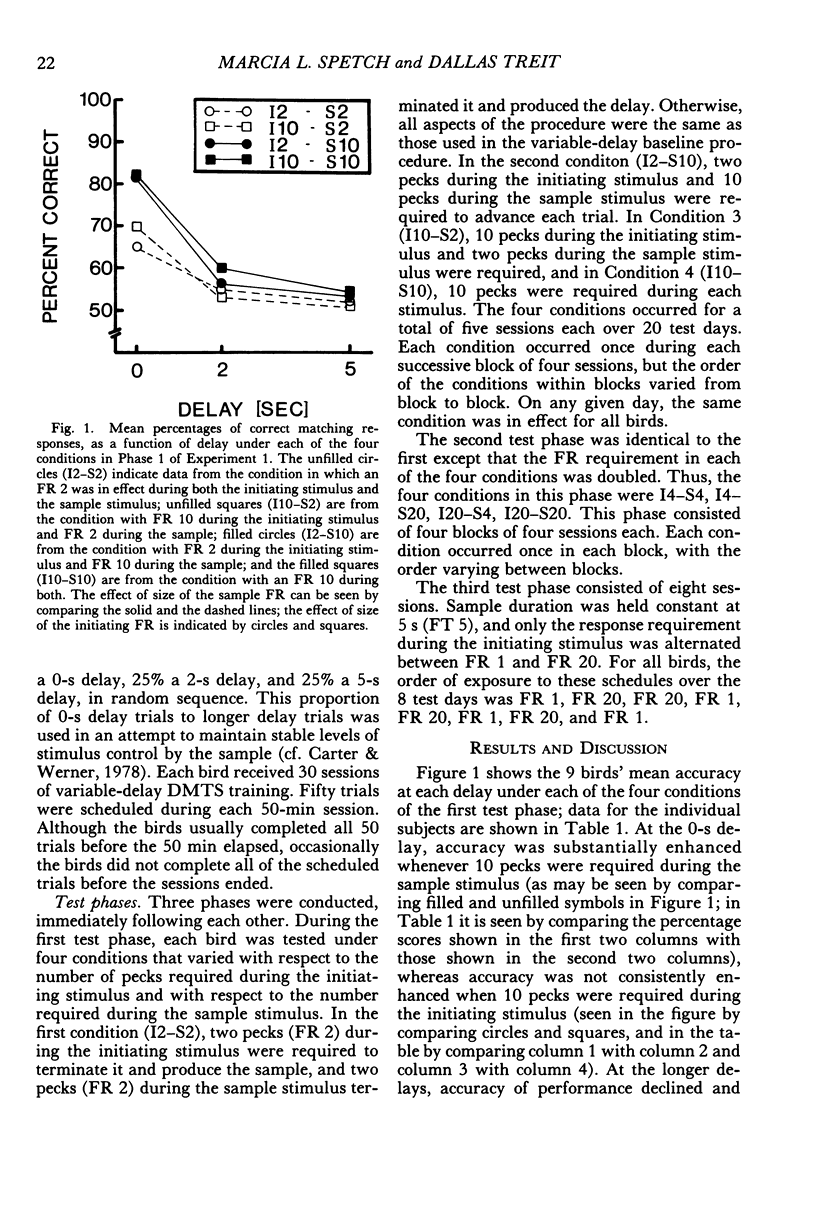
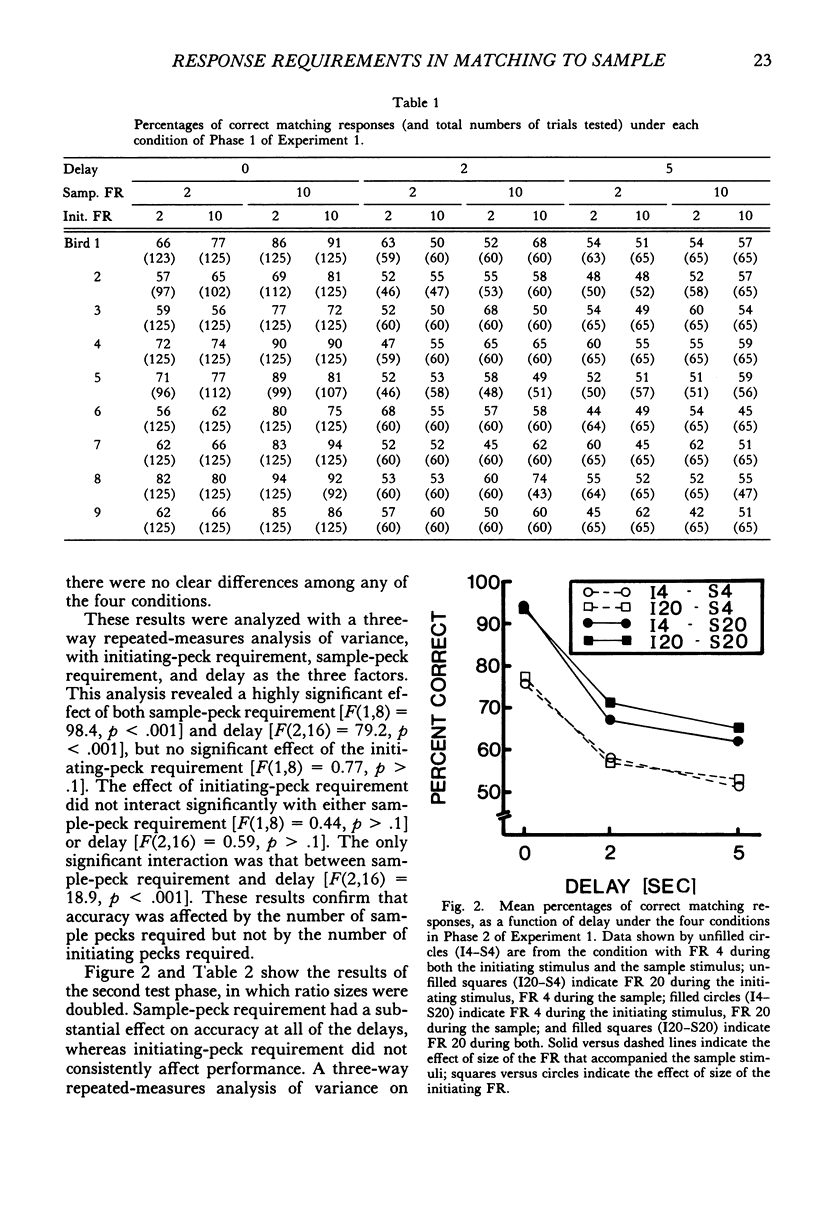
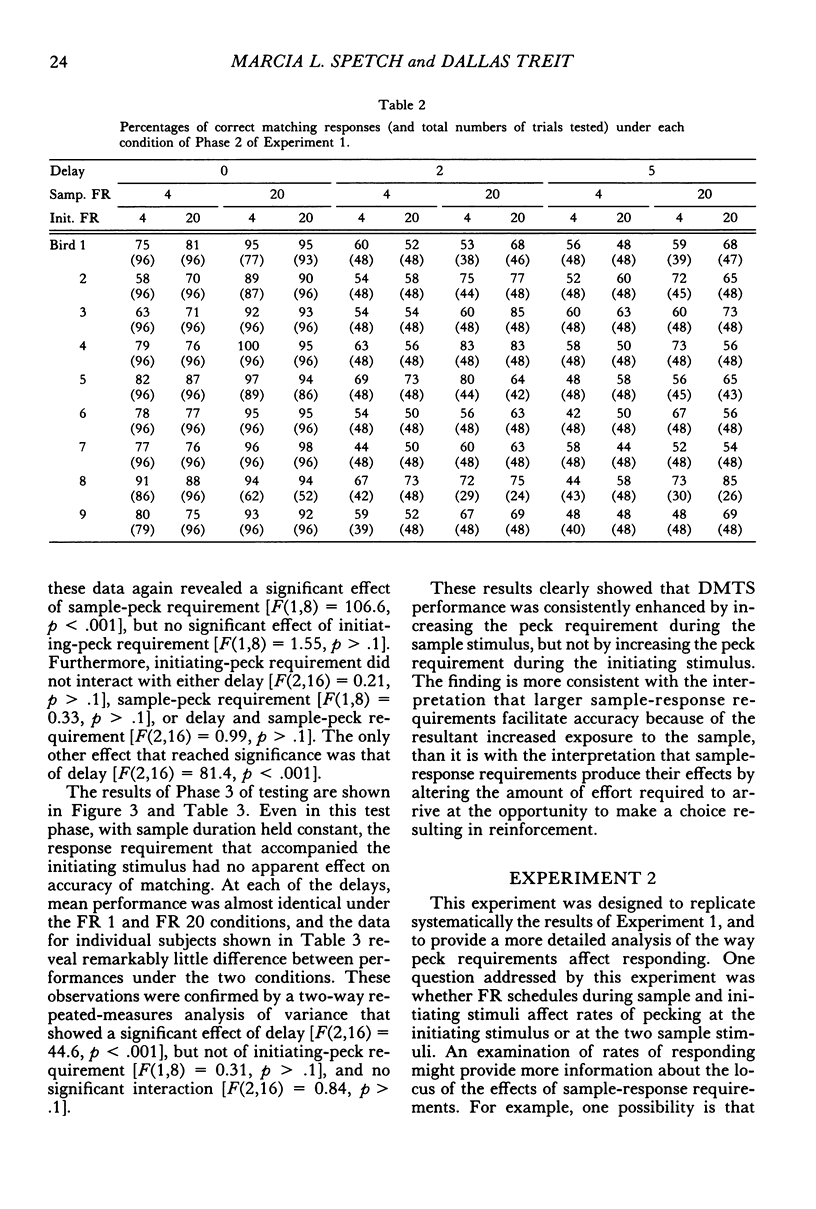
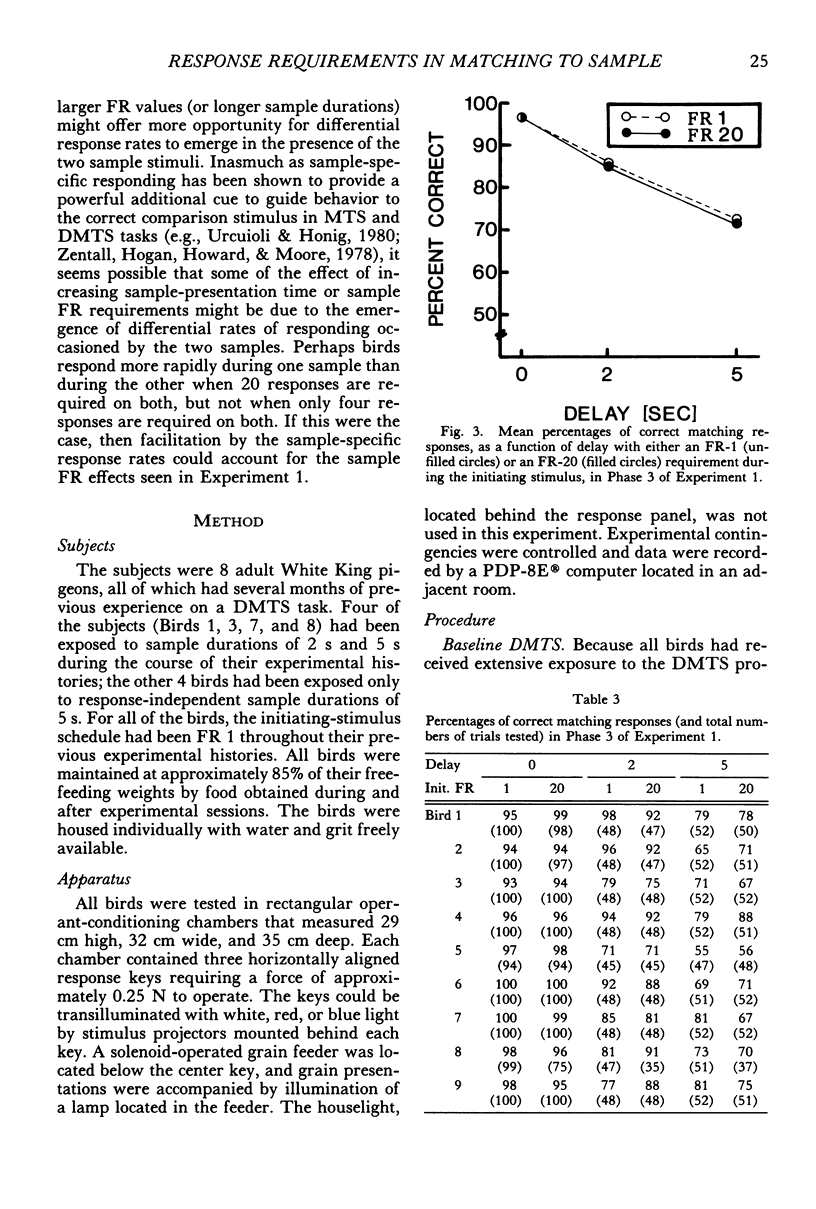
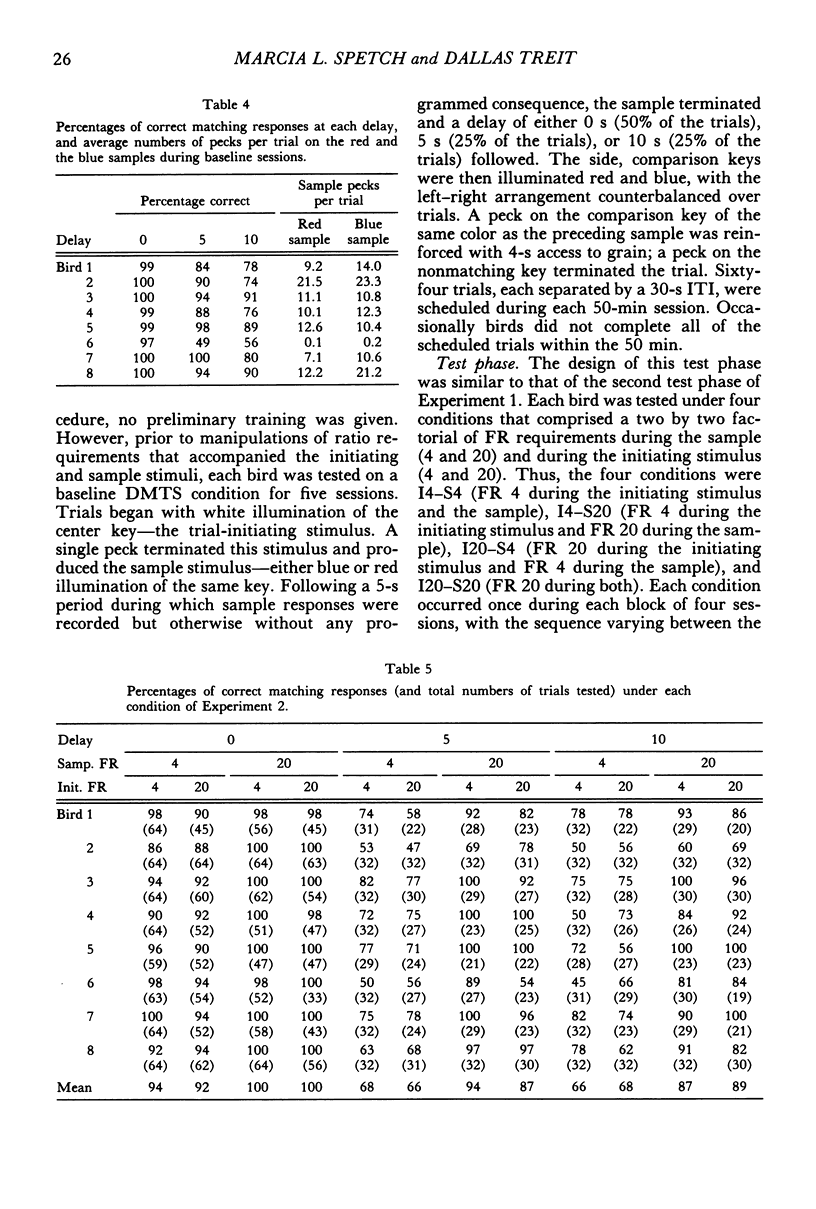
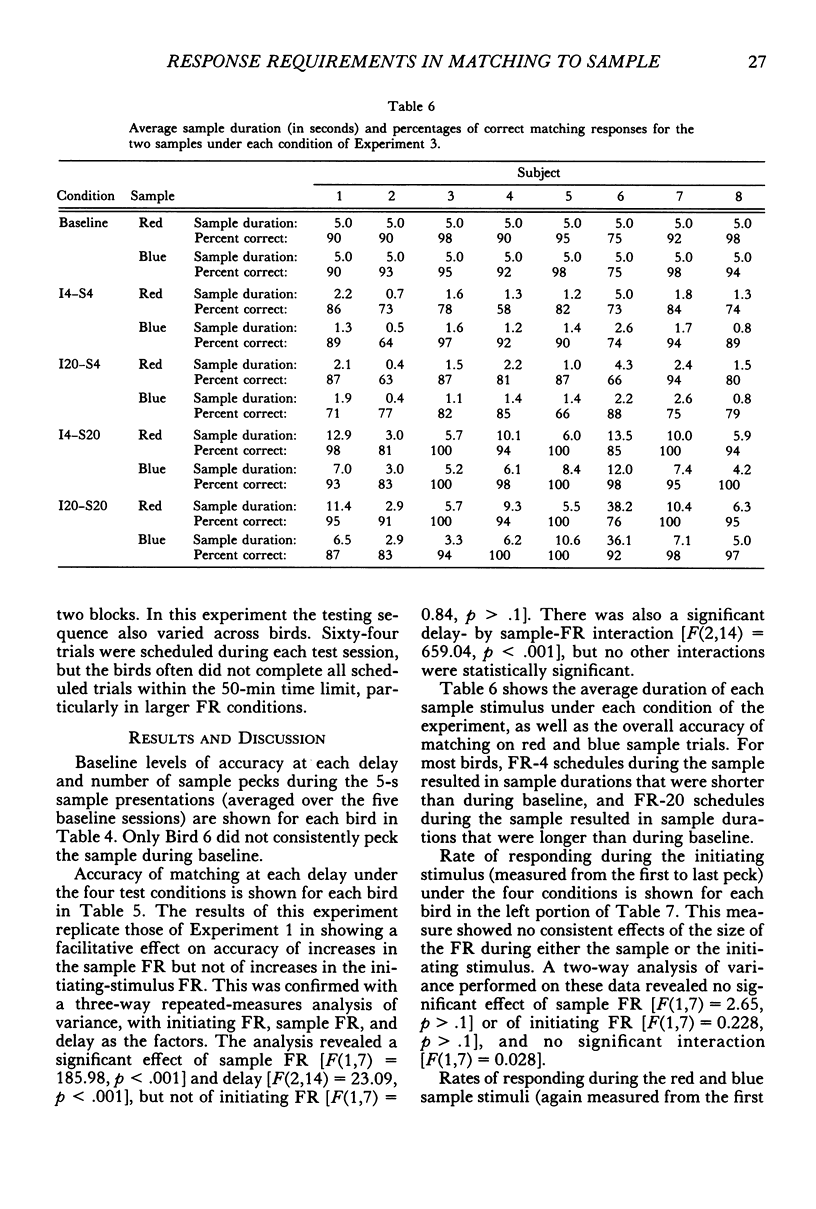
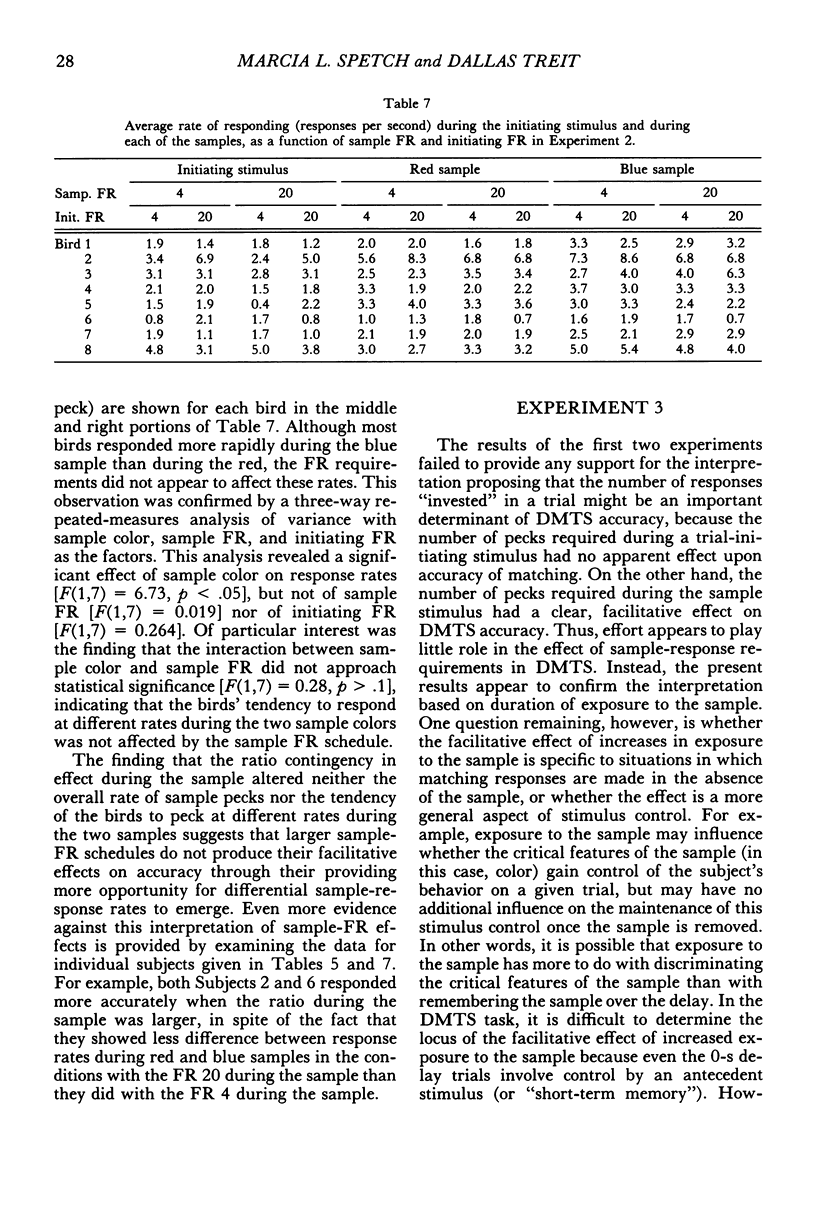
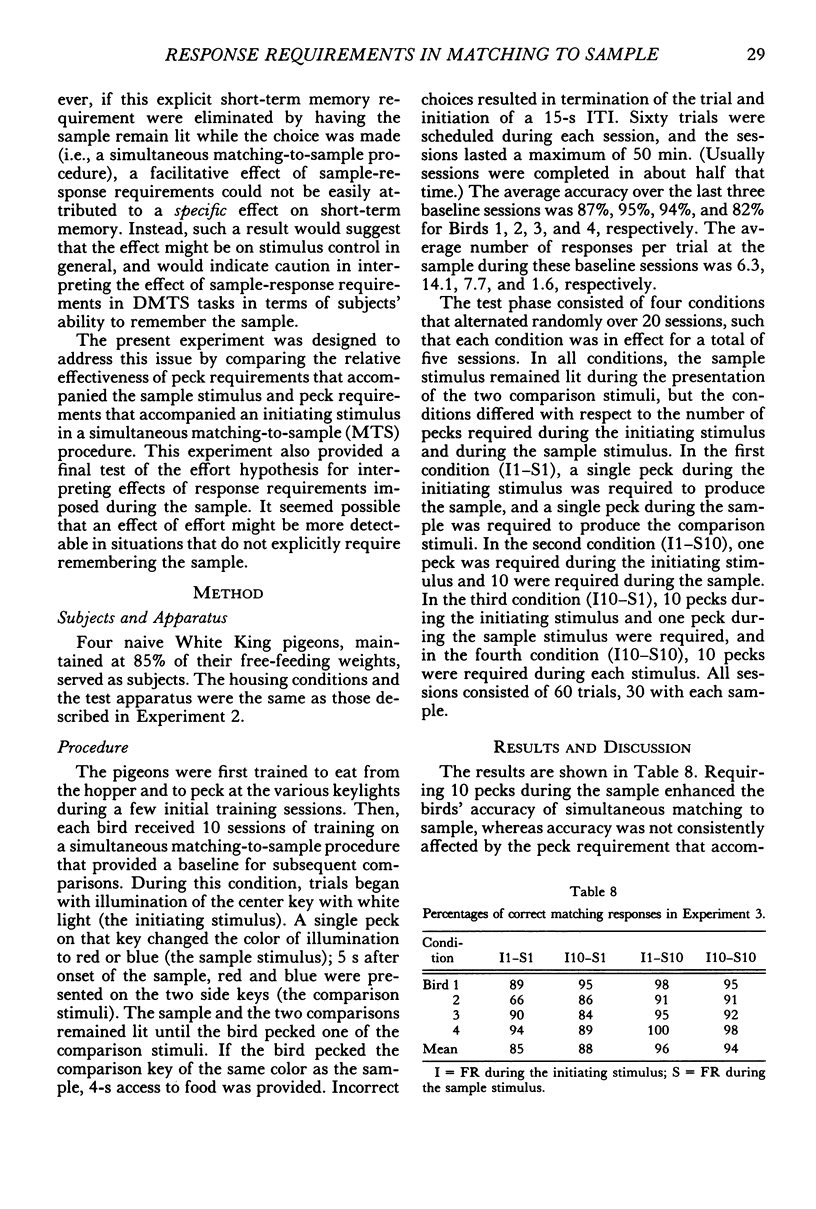
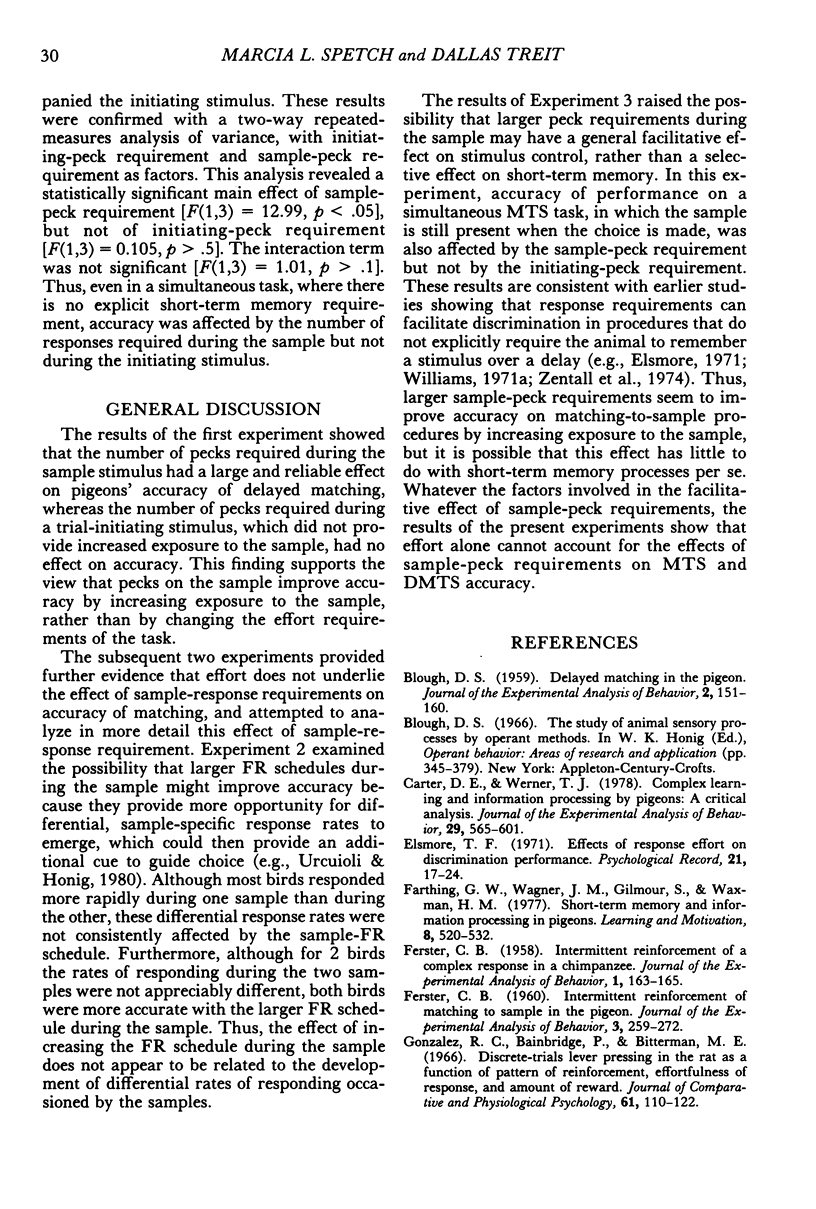
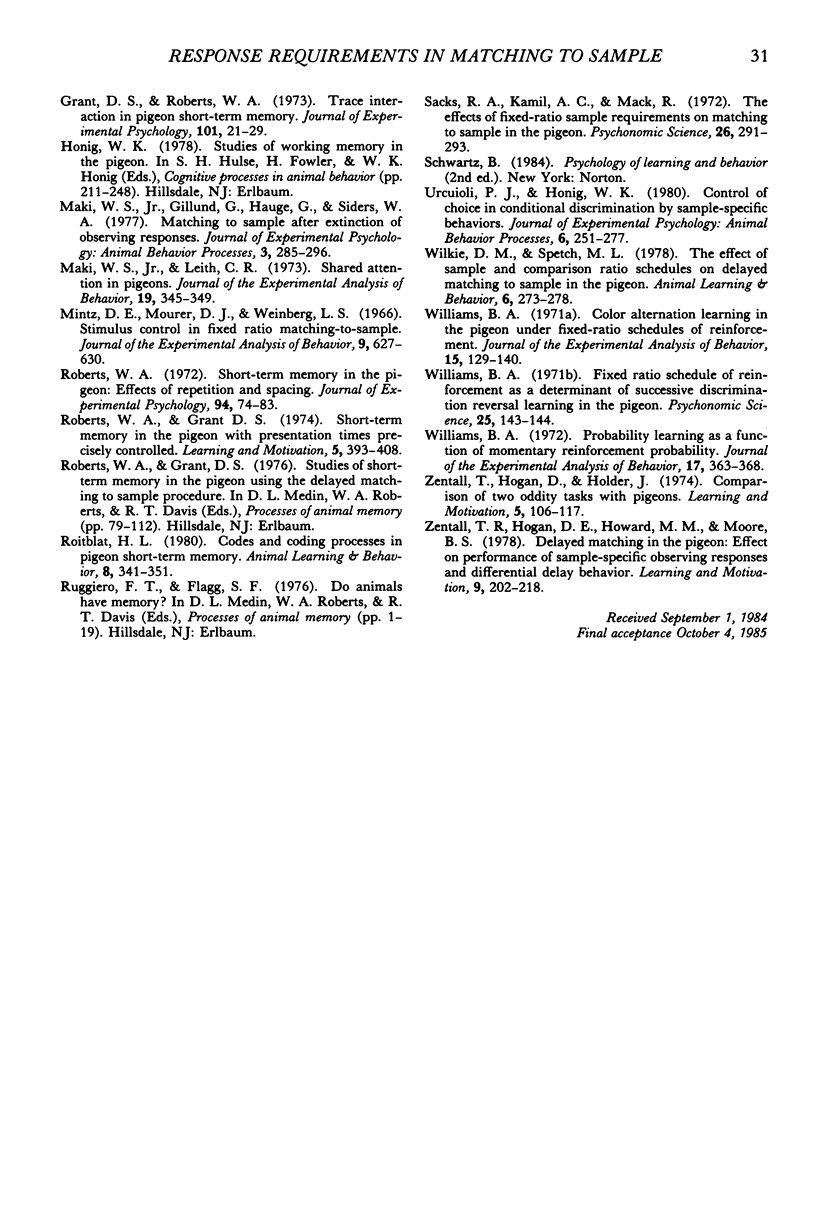
Selected References
These references are in PubMed. This may not be the complete list of references from this article.
- BLOUGH D. S. Delayed matching in the pigeon. J Exp Anal Behav. 1959 Apr;2:151–160. doi: 10.1901/jeab.1959.2-151. [DOI] [PMC free article] [PubMed] [Google Scholar]
- Carter D. E., Werner T. J. Complex learning and information processing by pigeons: a critical analysis. J Exp Anal Behav. 1978 May;29(3):565–601. doi: 10.1901/jeab.1978.29-565. [DOI] [PMC free article] [PubMed] [Google Scholar]
- FERSTER C. B. Intermittent reinforcement of matching to sample in the pigeon. J Exp Anal Behav. 1960 Jul;3:259–272. doi: 10.1901/jeab.1960.3-259. [DOI] [PMC free article] [PubMed] [Google Scholar]
- Ferster C. B. Intermittent Reinforcement of a Complex Response in a Chimpanzee. J Exp Anal Behav. 1958 Apr;1(2):163–165. doi: 10.1901/jeab.1958.1-163. [DOI] [PMC free article] [PubMed] [Google Scholar]
- Gonzalez R. C., Bainbridge P., Bitterman M. E. Discrete-trials lever pressing in the rat as a function of pattern of reinforcement, effortfulness of response, and amount of reward. J Comp Physiol Psychol. 1966 Feb;61(1):110–122. doi: 10.1037/h0022878. [DOI] [PubMed] [Google Scholar]
- Maki W. S., Jr, Leith C. R. Shared attention in pigeons. J Exp Anal Behav. 1973 Mar;19(2):345–349. doi: 10.1901/jeab.1973.19-345. [DOI] [PMC free article] [PubMed] [Google Scholar]
- Mintz D. E., Mourer D. J., Weinberg L. S. Stimulus control in fixed ratio matching-to-sample. J Exp Anal Behav. 1966 Nov;9(6):627–630. doi: 10.1901/jeab.1966.9-627. [DOI] [PMC free article] [PubMed] [Google Scholar]
- Urcuioli P. J., Honig W. K. Control of choice in conditional discriminations by sample-specific behaviors. J Exp Psychol Anim Behav Process. 1980 Jul;6(3):251–277. [PubMed] [Google Scholar]
- Williams B. A. Color alternation learning in the pigeon under fixed-ratio schedules of reinforcement. J Exp Anal Behav. 1971 Mar;15(2):129–140. doi: 10.1901/jeab.1971.15-129. [DOI] [PMC free article] [PubMed] [Google Scholar]
- Williams B. A. Probability learning as a function of momentary reinforcement probability. J Exp Anal Behav. 1972 May;17(3):363–368. doi: 10.1901/jeab.1972.17-363. [DOI] [PMC free article] [PubMed] [Google Scholar]


